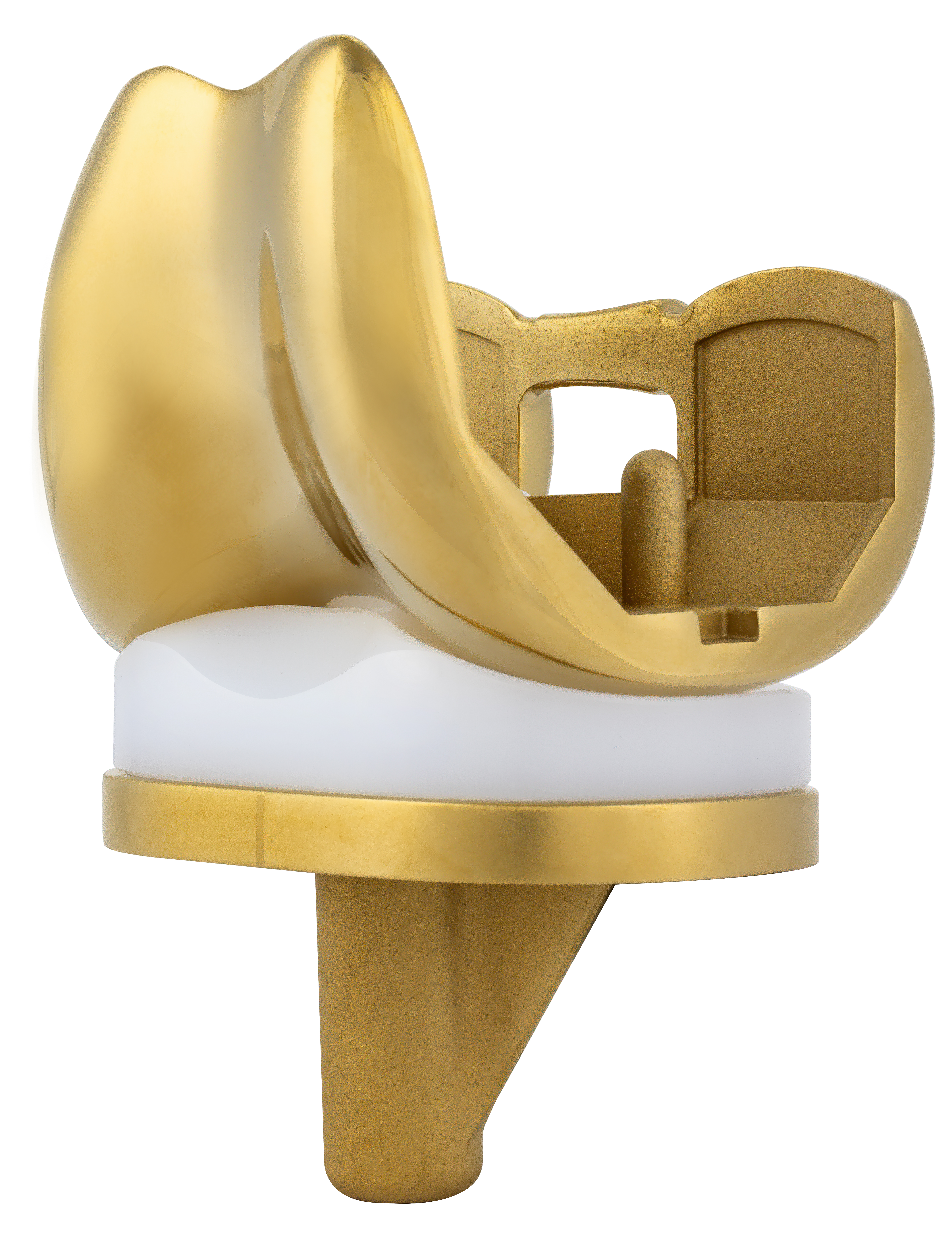While total knee arthroplasty (TKA) is common and effective, surgeons who perform joint replacements need to be aware of concerns about the compatibility of orthopedic implants with patients who have allergies or sensitivities to metal.
A metal allergy can be problematic in knee replacement surgery for patients with histories of allergic reactions to such materials used in prosthetic devices as cobalt, chromium, titanium, and nickel. Metal allergies and sensitivities can impact surgical success and the healing process.
By discussing the possibility of metal allergies with knee replacement patients, conducting preoperative testing, and choosing the most appropriate materials for an implant, orthopedic surgeons can significantly minimize this risk.
Understanding the Prevalence of Allergic Reactions to Metal
 In the field of orthopedic surgery, such metals as titanium, cobalt-chromium (CoCr) alloys, and stainless steel have become indispensable to the longevity, functionality, and biocompatibility of prosthetic joints.
In the field of orthopedic surgery, such metals as titanium, cobalt-chromium (CoCr) alloys, and stainless steel have become indispensable to the longevity, functionality, and biocompatibility of prosthetic joints.
There has been increased attention surrounding metal hypersensitivity, particularly around knee arthroplasty.
At the same time, between 10% and 15% of the general population “present dermatologic symptoms caused by metal hypersensitivity,” according to Dr. Maristella Saccomanno and colleagues.
Although these terms are often used interchangeably, distinguishing between metal allergy and metal sensitivity is important.
- Metal allergy is a systemic immune response when the body comes into contact with specific metals. This type of reaction typically arises from a previous sensitization to a metal, leading the immune system to overreact upon reexposure.
- Metal sensitivity is a nonimmune-mediated reaction that may involve discomfort or adverse reactions but is less severe than an allergic reaction and without an identifiable immune response.
Recognizing Symptoms of Metal Allergies in Knee Replacement Patients
Knowing the symptoms associated with a metal sensitivity or a metal allergy in knee replacement patients is essential for ensuring their safety and improving postoperative outcomes.
Common manifestations include localized skin rashes or swelling, often around the incision site or where tissues surround the implant. These dermatological signs may be present within days to weeks after surgery and can lead to discomfort and distress.
Some patients may also experience:
- Persistent pain in the knee
- Chronic or intermittent redness and warmth in the knee
- Knee stiffness and reduced range of motion
- Fatigue or malaise
Metal allergy or metal sensitivity in knee replacement patients may not always be the cause of these symptoms, making the condition difficult to diagnose. Being aware of the possibility, however, can lead to better patient care.
Identifying the Risk Before Knee Replacement Surgery
 Communication and testing are the keys to dealing with allergic reactions to metals in knee replacements.
Communication and testing are the keys to dealing with allergic reactions to metals in knee replacements.
Patients should discuss any concerns about metal allergies with their surgeons and disclose all relevant medical history before orthopedic surgery. As their surgeon, ensure you have given them the opportunity for an open dialogue about any potential risks of allergies or sensitivities to materials you will be using.
Additionally, preoperative testing for metal allergies, including skin patch testing and blood work, is becoming more integrated into orthopedic practice.
Patch tests can help identify specific sensitivities by applying small amounts of metal to the skin and watching for reactions. This method allows healthcare providers to determine if a patient has an allergy to specific metals used in their knee implants. Be aware a positive test does not necessarily predict a patient will have problems with their orthopedic implant.
Choose the Freedom Titan Knee To Reduce Patients’ Metal Allergy Risk
While metal allergies in knee replacement patients can pose challenges, awareness, early detection, and appropriate planning can mitigate risks.
 Choosing the orthopedic implants most appropriate for your patient is a crucial part of that planning. The Freedom Titan Knee System from Maxx Orthopedics can help you reduce the risk of complications from metal allergies in your patients.
Choosing the orthopedic implants most appropriate for your patient is a crucial part of that planning. The Freedom Titan Knee System from Maxx Orthopedics can help you reduce the risk of complications from metal allergies in your patients.
The Freedom Titan Knee features a titanium niobium nitride (TiNbN) coating that has been shown to block the release of Co and Cr ions common in standard implants.1 This long-term chemical stability means the avoidance of potential metal ion sensitivities and allergies. Additionally, its significant scratch resistance and low friction coefficient help ensure the implant’s integrity over time.
Get more information about how the Freedom Titan Knee can help you achieve reliably successful results and help your primary total knee arthroplasty patients enjoy improved outcomes and quality of life.
References
- Serro et al. (2009) A Comparative Study of Titanium Nitrides, TiN, TiNbN and TiCN, as Coatings for Biomedical Applications. Surface & Coatings Technology 203 (2009), pp. 3701–3707.

 In the field of orthopedic surgery, such metals as titanium, cobalt-chromium (CoCr) alloys, and stainless steel have become indispensable to the longevity, functionality, and biocompatibility of prosthetic joints.
In the field of orthopedic surgery, such metals as titanium, cobalt-chromium (CoCr) alloys, and stainless steel have become indispensable to the longevity, functionality, and biocompatibility of prosthetic joints. Communication and testing are the keys to dealing with allergic reactions to metals in knee replacements.
Communication and testing are the keys to dealing with allergic reactions to metals in knee replacements. Choosing the orthopedic implants most appropriate for your patient is a crucial part of that planning. The
Choosing the orthopedic implants most appropriate for your patient is a crucial part of that planning. The